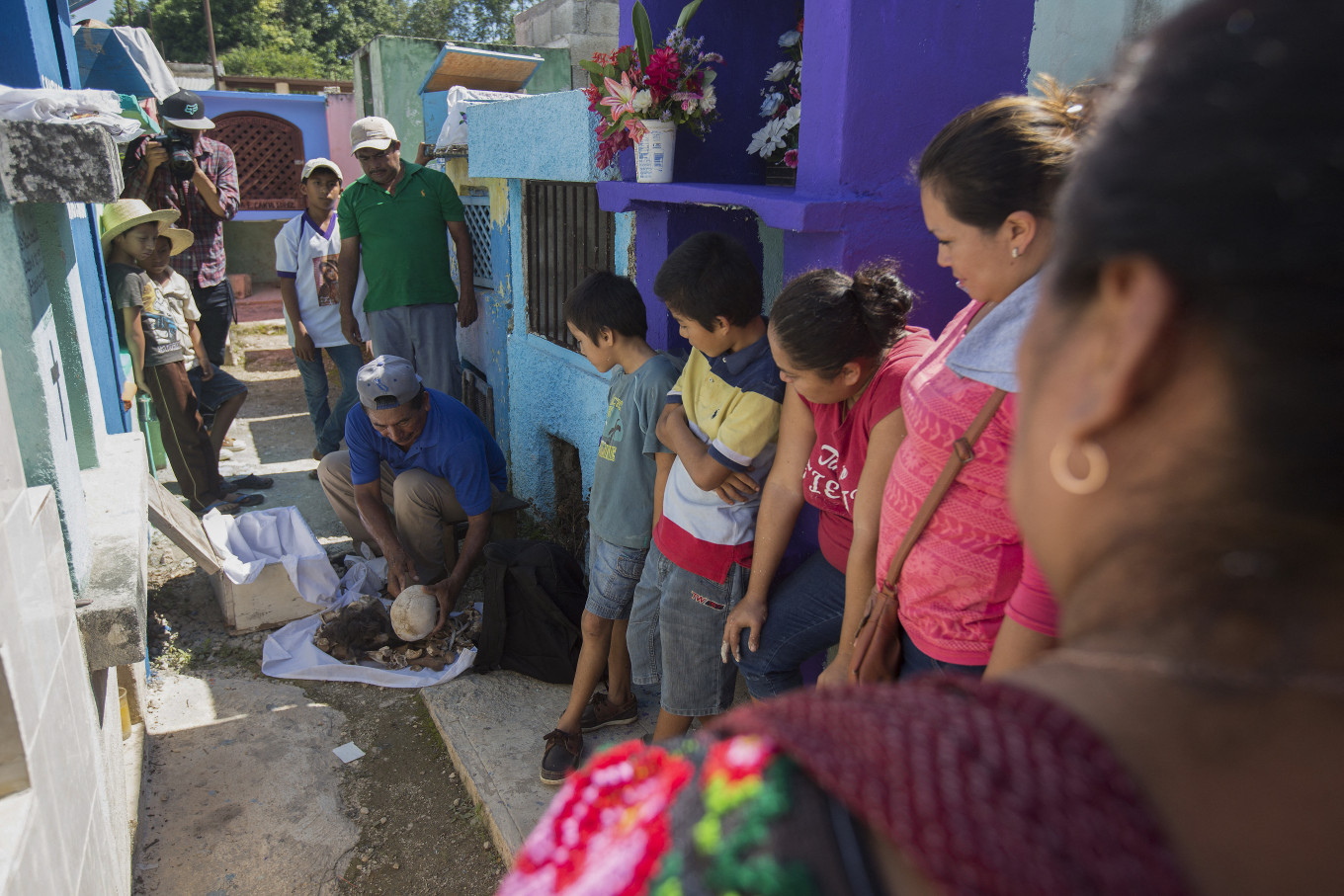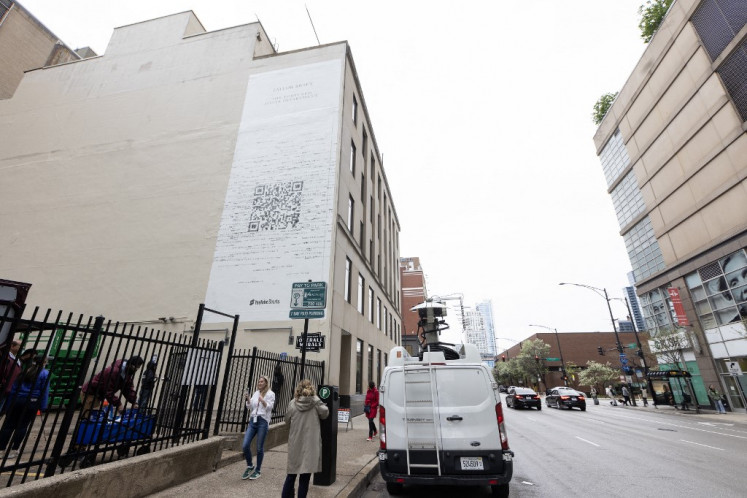Cleaning bones: Maya community honors the dead
This year, the ritual, usually held in late October before Mexico's Day of the Dead festival, is taking place for the first time since the start of the coronavirus pandemic.
Change Size
 A man cleans the bones of a loved one as part of a ritual ahead of the Day of the Dead celebration, in the Mayan village of Pomuch, Campeche State, Mexico, on October 28, 2018. Days before the celebration of the days of the dead people usually go to the cemetery to clean the bones of their loved ones as well as talk to them about what happens in the family. This connection between life and death has been carried out since ancient times. The ritual consists in changing the cloth where the remains are kept, which is prepared by the family throughout the year and bears the name of the deceased.
(AFP/Hugo Borges)
A man cleans the bones of a loved one as part of a ritual ahead of the Day of the Dead celebration, in the Mayan village of Pomuch, Campeche State, Mexico, on October 28, 2018. Days before the celebration of the days of the dead people usually go to the cemetery to clean the bones of their loved ones as well as talk to them about what happens in the family. This connection between life and death has been carried out since ancient times. The ritual consists in changing the cloth where the remains are kept, which is prepared by the family throughout the year and bears the name of the deceased.
(AFP/Hugo Borges)
A
ntonio Canche lovingly brushed a relative's skull in a cemetery in the Mexican jungle -- part of the Maya community's ancestral bone cleaning tradition to honor the dead.
This year, the ritual, usually held in late October before Mexico's Day of the Dead festival, is taking place for the first time since the start of the coronavirus pandemic.
Indigenous Maya residents of Pomuch in Mexico's southeastern state of Campeche carefully open graves and take out the bones of their relatives.
After they are cleaned, the burial shroud is changed for a new one and the remains are returned to their resting place, said Canche.
Canche, 74, spent the whole day cleaning the remains of his in-laws, his parents and an uncle.
"For me it means joy and enthusiasm to do it," he said.
Between songs and anecdotes, the families watched over the remains for a few hours to give them some sun and fresh air.
"Come out, come out souls of grief," women sang in front of open boxes containing human remains and white clothes embroidered with the names of the deceased.
"It's a very beautiful tradition to remember our ancestors," said resident Jacinta Chi.
"We change their shrouds because the celebration is coming and we remember them with a lot of love and affection," he added.
It is customary for bones to be cleaned for the first time three years after death, and every year thereafter.
"Last year due to the pandemic, the ritual was not carried out. Many people were very afraid," said Sebastian Yam, Pomuch's cultural representative.
"The pandemic was worldwide, and definitely here in Pomuch as in all places there were many people who died because of Covid," he said.
This year one woman performed the ritual for the first time with the remains of her father. She had to open the coffin, remove the skeleton, divide it into pieces and place them in a wooden box.
Nobody knows exactly when the bone cleaning practice began, but Yam believes it to be centuries old, based on the accounts of the village elders.
After cleaning the remains of their relatives, the residents of Pomuch, like others Mexicans, will set up an altar in their homes with their favorite dishes and drinks for the Day of the Dead.
It is believed that their spirits will return from death to eat and drink on what is one of Mexico's most important festivals, celebrated at the start of November.
Orange marigold flowers are laid out to guide the spirits to the altar as part of this tradition recognized by UNESCO on the List of the Intangible Cultural Heritage of Humanity in 2008.









